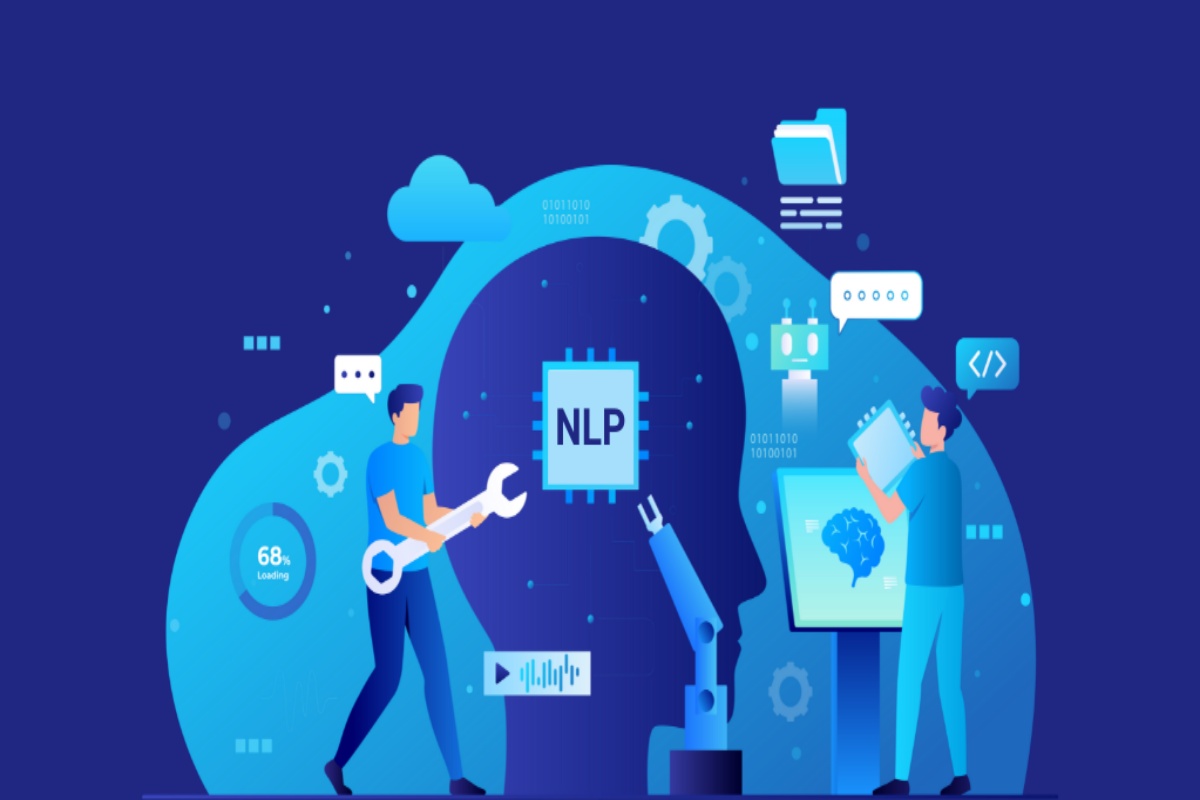In an era where technology touches every corner of our lives, the way humans and machines communicate is undergoing a profound transformation. At the center of this revolution lies Natural Language Processing (NLP) — a dynamic subfield of artificial intelligence (AI) that enables computers to understand, interpret, generate, and respond to human language.
From voice assistants like Siri and Alexa to real-time translation apps, sentiment analysis tools, and chatbots like ChatGPT, NLP is no longer just a niche academic topic; it’s a practical and transformative technology powering some of the world’s most innovative applications. But what exactly makes NLP so powerful — and why should you consider learning it?
In this blog, we’ll explore the importance of NLP, the real-world applications, and the top reasons why learning NLP can be a game-changer for your career, business, or intellectual curiosity.
What is Natural Language Processing?
At its core, Natural Language Processing is a field that bridges linguistics, computer science, and machine learning. The goal is to teach machines how to understand and generate human language in a way that’s meaningful and useful.
NLP includes a wide range of tasks:
- Language translation (e.g., Google Translate)
- Text summarization
- Sentiment analysis
- Speech recognition
- Chatbots and virtual assistants
- Named Entity Recognition (NER)
- Question answering
- Text generation (like the one you’re reading!)
NLP combines rule-based approaches, statistical models, and increasingly, deep learning techniques like transformers (e.g., BERT, GPT) to achieve these capabilities.
Why Learn NLP? Top Reasons to Dive In
1. NLP is Everywhere: Unlock Ubiquitous Applications
Whether you’re aware of it or not, NLP is embedded in many tools and services you use daily:
- Email spam filters detect unwanted messages.
- Search engines like Google use NLP to understand your queries.
- Social media monitoring tools analyze public sentiment.
- Customer support bots engage in natural-sounding conversations.
- Translation tools help bridge global communication.
Learning NLP opens up a vast landscape of opportunities to improve products, enhance user experiences, and even contribute to social good (e.g., monitoring misinformation, analyzing legal documents, detecting cyberbullying).
2. Career Opportunities and High Demand
The demand for NLP experts is surging. Companies across sectors — from healthcare to finance, e-commerce to media — are seeking professionals who can leverage NLP to gain insights from text data or build intelligent applications.
According to LinkedIn and Indeed, job listings for NLP-related roles (e.g., NLP Engineer, Data Scientist, AI Researcher) have grown exponentially in recent years. Learning NLP can put you on a path to roles such as:
- NLP Engineer
- Machine Learning Scientist
- Data Analyst/Data Scientist
- AI Researcher
- Conversational AI Developer
These roles are often accompanied by competitive salaries and opportunities for impact.
3. Text Data is Exploding — And Needs Structure
Over 80% of all data generated today is unstructured, with text being one of the most abundant forms. Social media posts, reviews, reports, support tickets, news articles — they all contain valuable insights waiting to be unlocked.
By learning NLP, you gain the ability to convert unstructured text into structured information, enabling powerful data analysis and decision-making.
4. Advance Your Machine Learning Skills
If you’re already learning machine learning or data science, diving into NLP is a natural next step. You’ll get to apply and deepen your understanding of:
- Classification
- Regression
- Clustering
- Neural networks
- Deep learning
- Transformers and embeddings
NLP challenges you to work with complex, high-dimensional data (text), which enhances your ability to model, evaluate, and fine-tune machine learning systems.
5. Interdisciplinary Learning and Research
NLP sits at the intersection of language, psychology, and computer science. It encourages holistic thinking:
- Linguistic knowledge: Learn about syntax, semantics, and grammar.
- Cognitive science: Understand how humans process language.
- Ethics: Explore fairness, bias, and responsible AI.
This interdisciplinary nature makes NLP fascinating and intellectually rewarding — perfect for lifelong learners and researchers.
6. Empower Creativity and Build Innovative Products
Want to build a chatbot that tells jokes? A tool that summarizes scientific papers? A sentiment analysis engine for movie reviews?
NLP provides a toolkit for creativity and problem-solving. Many NLP tasks have real-world impact, and open-source tools (like spaCy, Hugging Face Transformers, NLTK, and OpenAI APIs) make it easier than ever to get started with minimal infrastructure.
You don’t need a PhD to create something incredible.
How to Start Learning NLP
Getting started with NLP is easier today than ever before, thanks to accessible learning platforms, tutorials, and tools.
Here’s a roadmap for beginners:
1. Brush Up on Prerequisites
- Python programming
- Basic statistics and probability
- Fundamentals of machine learning
2. Learn Core NLP Concepts
- Tokenization, stemming, lemmatization
- POS tagging and parsing
- Bag-of-Words and TF-IDF
- Word embeddings (Word2Vec, GloVe)
- Transformers (BERT, GPT, T5)
3. Hands-On Practice
Use platforms like:
- Kaggle (for datasets and projects)
- Google Colab (for running code in the cloud)
- Hugging Face (for pre-trained models)
4. Courses and Resources
- Coursera (e.g., DeepLearning.AI’s NLP specialization)
- fast.ai NLP course
- Books like “Speech and Language Processing” by Jurafsky & Martin
- YouTube tutorials and GitHub repositories
Final Thoughts: The Power of Understanding Language
Language is at the heart of human civilization. The ability to teach machines how to read, write, listen, and speak is not just a technical challenge — it’s a profound endeavor that touches every aspect of society.
Learning Natural Language Processing is not just about data science or AI — it’s about empowering machines to understand the human world.
Whether you’re a developer, researcher, entrepreneur, or curious learner, NLP offers you the tools to shape the future of communication, information access, and automation.
So, why learn NLP?
Because the world speaks in words — and the future belongs to those who can teach machines to listen.
Ready to get started with NLP? Let your journey into the world of human language and artificial intelligence begin today.

